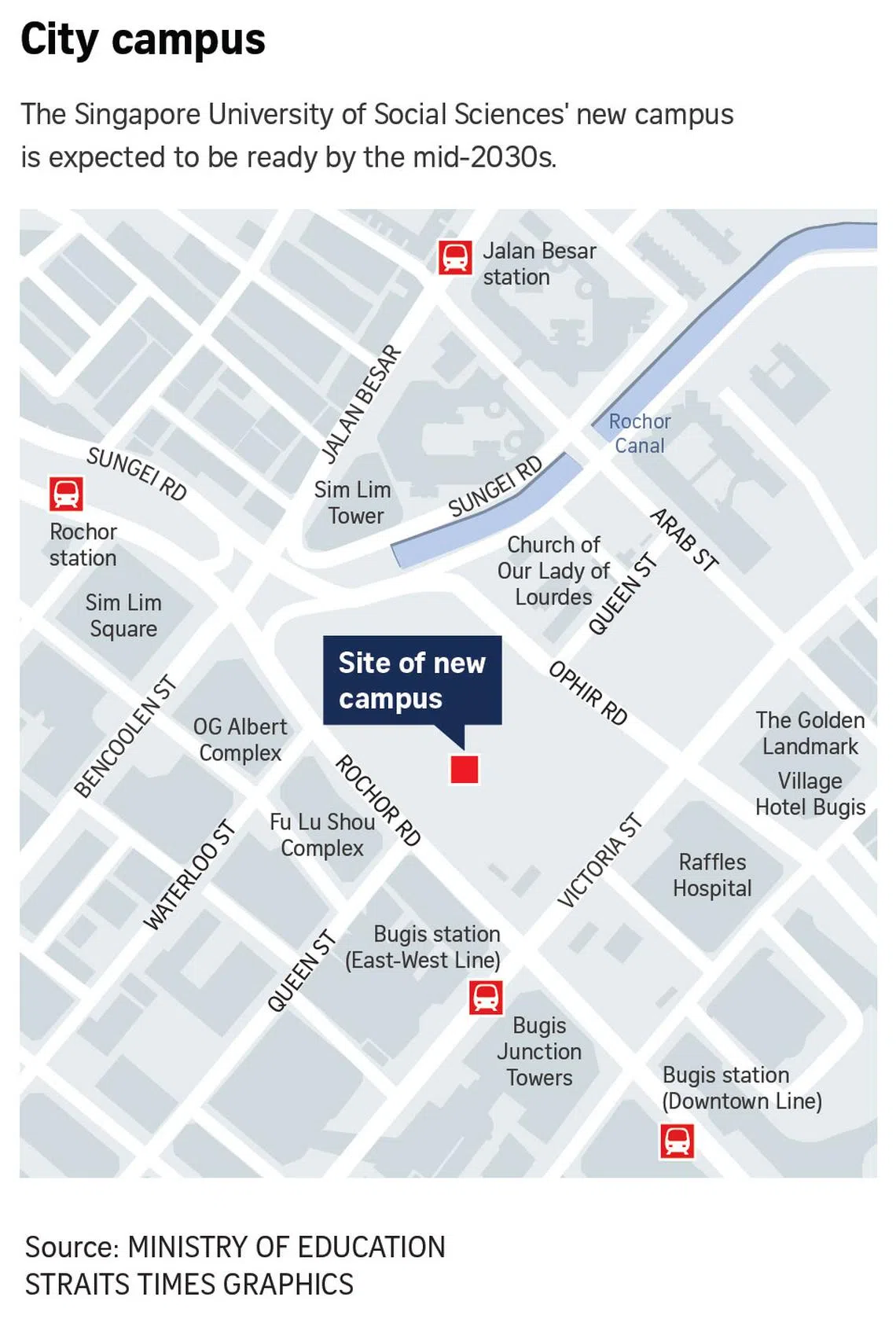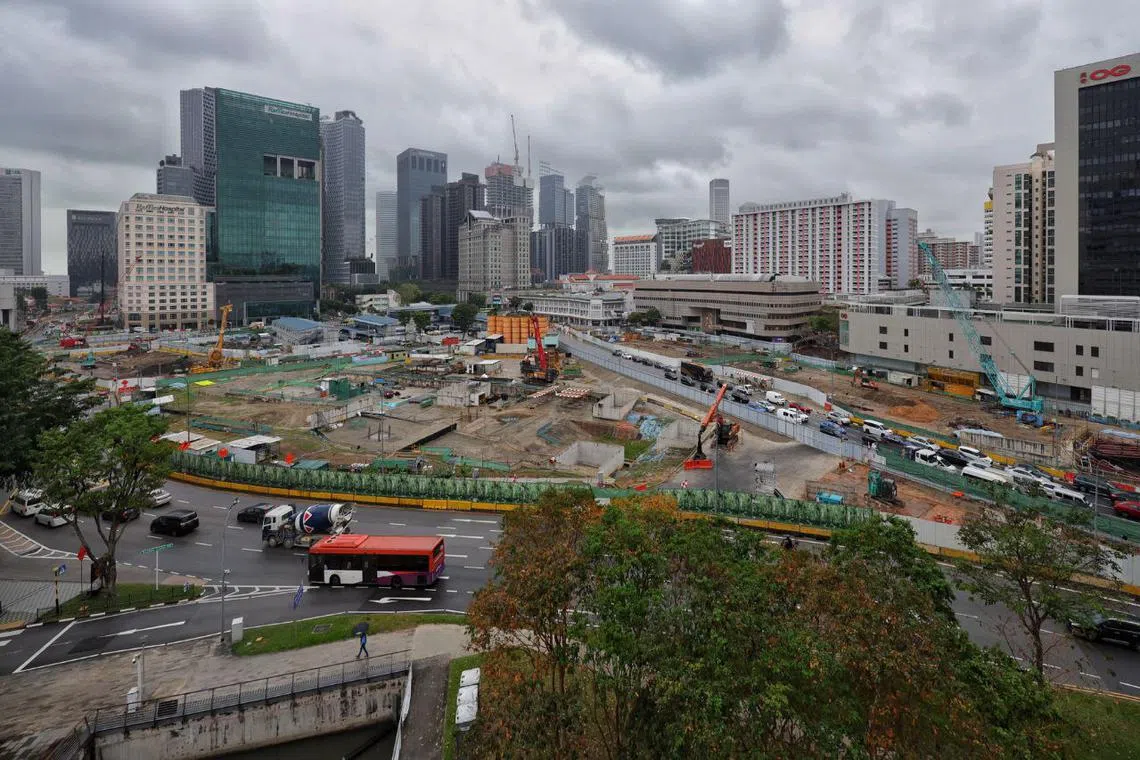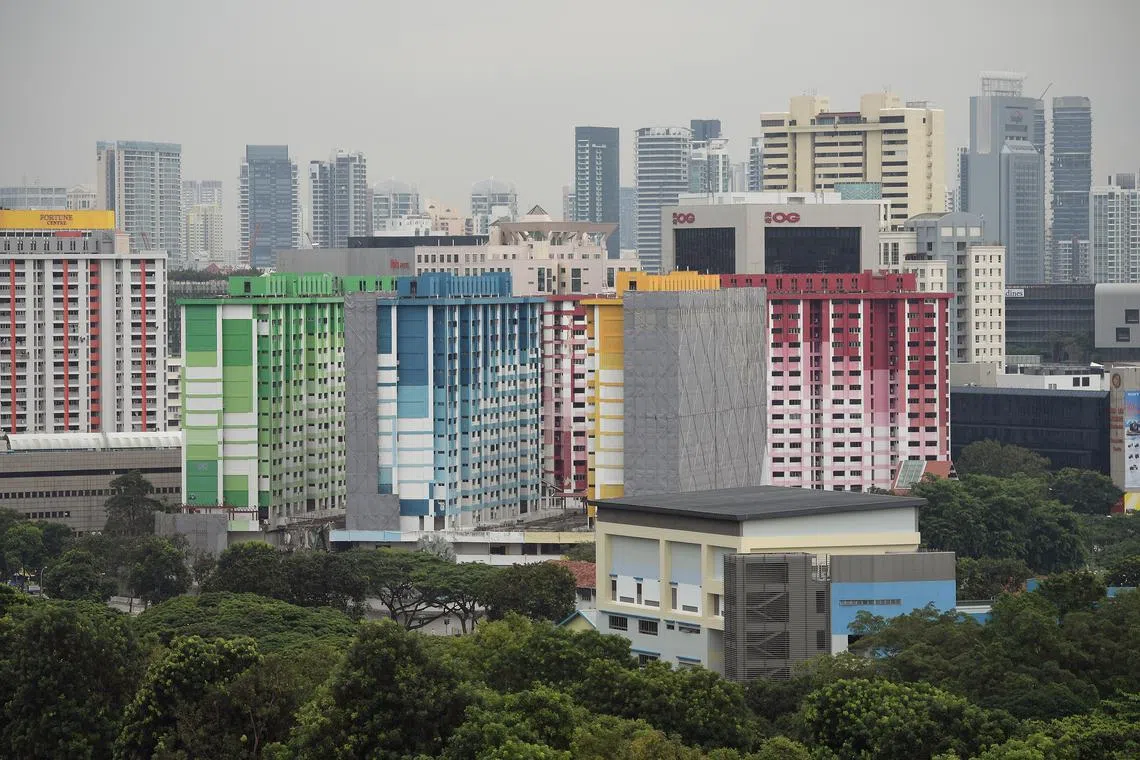SUSS’ new campus to be located at former Rochor Centre
Sign up now: Get ST's newsletters delivered to your inbox

The new SUSS campus, near Bugis, will take in some 40,000 students and learners across various courses and programmes.
ST PHOTO: AZMI ATHNI
SINGAPORE – The Singapore University of Social Sciences (SUSS) will have a new permanent city campus at the site of the former Rochor Centre and in the vicinity by the mid-2030s.
Announcing the university’s location on March 6, Education Minister Chan Chun Sing said the central location will make SUSS more accessible to learners of all ages, including working adults, as well as its partners in industry and the community.
The new campus, near Bugis, will take in some 40,000 students and learners across degree programmes, shorter courses and continuing education and training (CET) programmes, up from about 31,000 currently.
The former Rochor Centre – at the junction of Ophir Road and Rochor Road – was known for its four iconic colourful housing blocks. Demolition works were completed in April 2019.
Speaking in Parliament during the debate on his ministry’s budget, Mr Chan said SUSS’ current premises are not an ideal arrangement.
The university is spread across multiple rented premises, including its main location at the Singapore Institute of Management (SIM) in Clementi, where it began as UniSIM, a private university launched by SIM.
SUSS was converted to a publicly funded university in 2017 and is Singapore’s sixth autonomous university.

“It is time for SUSS to have its own, consolidated campus to accommodate its growing enrolment,” said Mr Chan, adding that the new campus will go beyond being just a building.
In his Budget speech on Feb 18, Prime Minister Lawrence Wong had said the new campus will enable SUSS to promote lifelong learning and deliver programmes with a strong social emphasis for learners of all ages, at an accessible location.
The school, which has about 13,200 part-time and 4,100 full-time undergraduate students, as well as 1,500 postgraduate students and 12,000 students in CET courses, has been operating on rented premises since 2005.
Mr Chan said many of its classes run after working hours as its programmes cater to the needs of different learners.
Most of its students are studying part-time and are working adults. Every year, it enrols about 1,000 full-time undergraduate students and some 4,000 part-time undergraduate and graduate students.
“SUSS has enabled more Singaporeans to pursue a subsidised degree, both fresh out of school or at a later stage in life,” said Mr Chan, adding that short courses can be counted towards a qualification or degree.
Since becoming an autonomous university, SUSS has seen some 22,000 graduates pass through its doors, said the minister.

The site of the former Rochor Centre, where Singapore University of Social Sciences’ new city campus will be located and opened by mid-2030s, on March 6.
ST PHOTO: KEVIN LIM
The average age of its part-time undergraduate students is 30. On average, they are on campus three times a week, usually in the evenings.
Mr Chan said the Ministry of Education will start taking in ideas from the university’s students, staff and alumni to design the campus and bring it to reality by the mid-2030s.
“SUSS must be a beacon for lifelong learning, continuous, compassionate meritocracy, and broader definitions of success.”
In written replies to The Straits Times, SUSS president Tan Tai Yong said students can look forward to a new campus equipped with modern teaching facilities. Staff and researchers will benefit from improved infrastructure and technological tools to support educational and research needs.

The former Rochor Centre – at the junction of Ophir Road and Rochor Road – was known for its four iconic colourful housing blocks. Demolition works were completed in April 2019.
ST PHOTO: JAMIE KOH
The university will also be able to better plan campus spaces efficiently, Professor Tan said. “The new campus will also accommodate future growth, ensuring sufficient capacity to support an expanding student population and a broader range of programmes.”
With improved accessibility, less time will be spent on commuting, allowing for more productive hours on campus, he said.
SUSS will also complement nearby institutions like Singapore Management University and the University of the Arts Singapore, by offering programmes related to human development and the social sciences, said Prof Tan.
“The new campus will be a long-awaited home for the SUSS community.”



